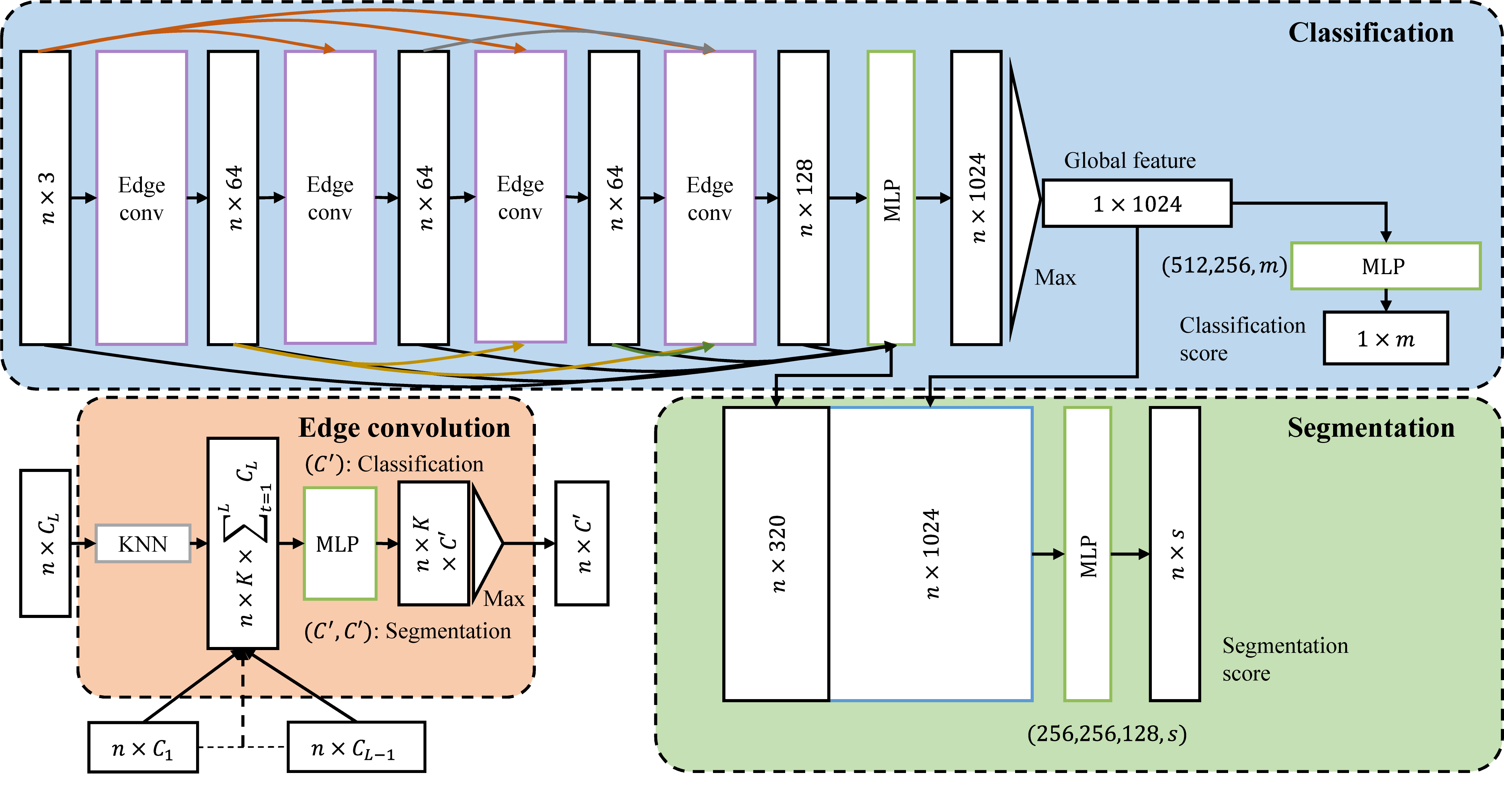We propose a linked dynamic graph CNN (LDGCNN) to classify and segment point cloud directly. We remove the transformation network, link hierarchical features from dynamic graphs, freeze feature extractor, and retrain the classifier to increase the performance of LDGCNN.
We have also uploaded the code and data to the codeocean and prepared the environment to run the code. You can run the code online and reproduce the experiments easily without installing any packages. You can view and run the code on: https://codeocean.com/capsule/0220918/tree/v1
For more related works and codes, please view my homepage: https://sites.google.com/view/kuangenzhang
Further information please contact Kuangen Zhang (kuangen.zhang@alumni.ubc.ca).
If you find our work useful in your research, please consider citing:
@article{zhang_linked_2019,
title = {Linked dynamic graph cnn: learning on point cloud via linking hierarchical features},
shorttitle = {Linked {Dynamic} {Graph} {CNN}},
urldate = {2019-04-24},
journal = {arXiv:1904.10014 [cs]},
author = {Zhang, Kuangen and Hao, Ming and Wang, Jing and de Silva, Clarence W. and Fu, Chenglong},
month = apr,
year = {2019}
}K. Zhang, M. Hao, J. Wang, C. W. de Silva, and C. Fu, “Linked dynamic graph cnn: learning on point cloud via linking hierarchical features,” arXiv:1904.10014 [cs], Apr. 2019.
LDGCNN is the improved version of Dynamic Graph CNN. We have evaluated our network on the point cloud classification dataset (ModelNet40) and segementation dataset (ShapeNet):
- Classification accuracy on the ModelNet40: 92.9%.
- Mean IoU on the ShapeNet: 85.1%
- TensorFlow
- h5py
sudo apt-get install libhdf5-dev
sudo pip install h5py-
ModelNet40 dataset is downloaded automatically through the
provider.py. -
We upload our pretrained model, you can evaluate the performance of our network directly by running the evaluation script:
python evaluate.py- Run the training script:
python train.pyEnter the "part_seg" file folder.
Load the data for part segmentation.
sh +x download_data.sh
We upload our trained model. You can evaluate the trained model by running:
python test.py
Train the model on 2 GPUs, each with 12 GB memeory.
python train_multi_gpu.py
Model parameters with the highest validation accuracy are saved in "log/ldgcnn_seg.ckpt*".
MIT License
We acknowledge that we borrow the code from PointNet and DGCNN heavily. We have marked our own parts in the code, otherwise the code is borrowed from PointNet and DGCNN.
- C. R. Qi, H. Su, K. Mo, and L. J. Guibas, “PointNet:Deep Learning on Point Sets for 3d Classification andSegmentation,” in2017 IEEE Conference on ComputerVision and Pattern Recognition (CVPR), Jul. 2017, pp.77–85, read.
- Y. Wang, Y. Sun, Z. Liu, S. E. Sarma, M. M. Bronstein,and J. M. Solomon, “Dynamic Graph CNN for Learningon Point Clouds,”arXiv:1801.07829 [cs], Jan. 2018,arXiv: 1801.07829.
